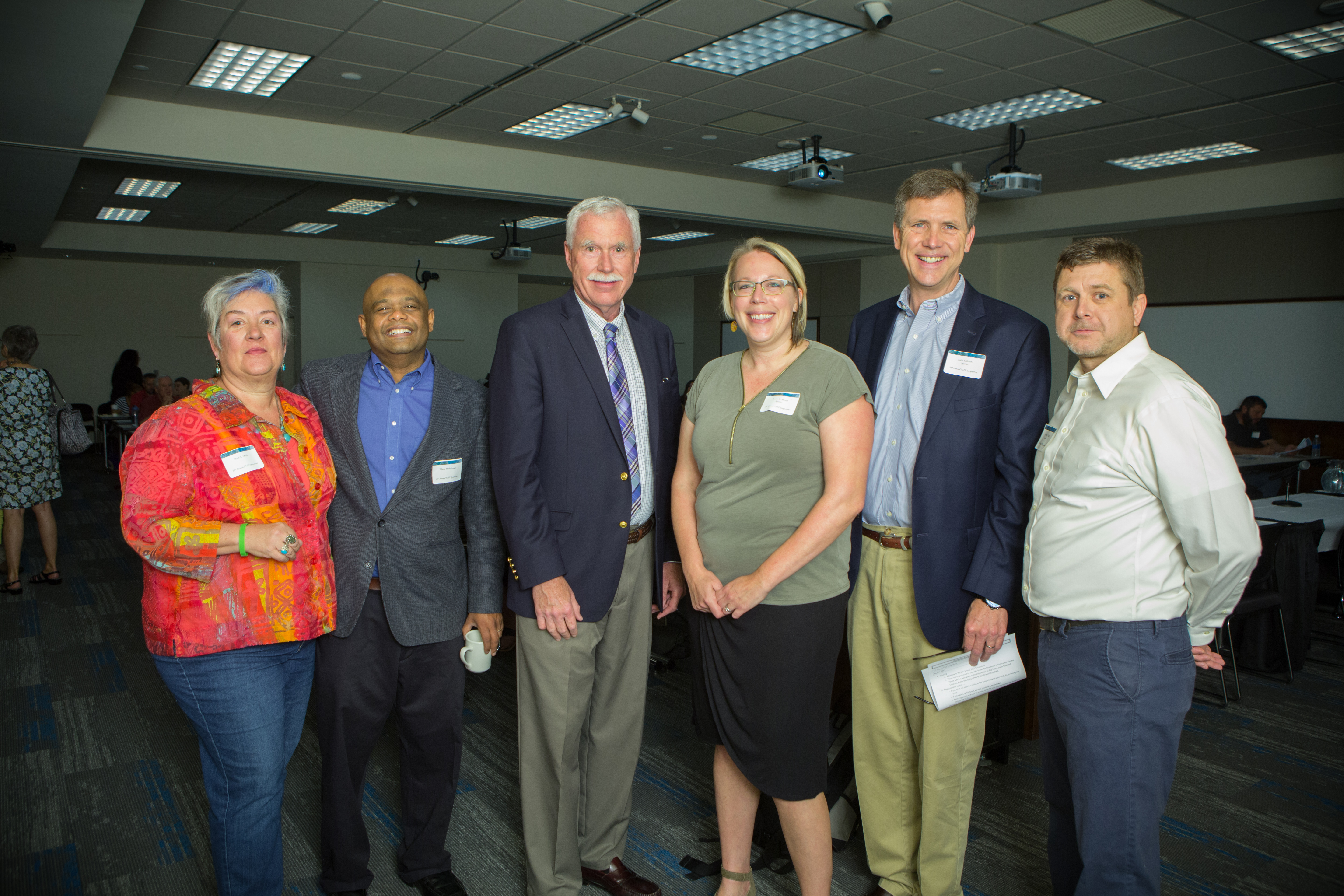
Mental wellness and recovery go well beyond medications and therapy; as with housing, employment is a critical part of many individuals’ recovery plans. This year’s successful 24th Annual STEP (Schizophrenia Treatment and Evaluation Program) Symposium featured the evidence-based Individual Placement and Support (IPS) supported employment-training model and included a panel of clients who discussed their work experiences.
More than 100 mental health professionals, patients/clients and families gathered at the UNC Friday Center, on Saturday morning, April 29 for “Working for recovery: Implementing the Individual Placement and Support (IPS) Employment Model.” John Gilmore, MD, director of the Center, Thad and Alice Eure Professor and vice chair, research and scientific affairs, hosted the symposium.
Michael Hogan, PhD, independent advisor and consultant, Hogan Health Solutions LLC; former New York State Commissioner of Mental Health, presented the keynote “Work—As important as treatment, but valued less. Can we change this?”
After an overview of supported employment training by Matt Diehl, MSW, program manager, trainer, IPS technical assistance program at UNC CECMH, and Ariel Reynolds, MSW, also an IPS trainer, a panel of clients discussed the impact of being employed in “Why I want to work.” Reynolds moderated the panel.
Diehl and Stacy Smith, LPC-S, CS-I, LCAS, NCC, adult mental health team lead, DMHDDSAS – Community Services and Support, NC Department of Health and Human Services, closed the program with “Getting high fidelity IPS out there: Where are we in North Carolina?”
An optional lunch was available at the Friday Center following the program.
Photo: L-R Stacey Smith, MEd, LPC, Thava Mahadevan, MS, Michael Hogan, PhD, Lorna Moser, PhD, John Gilmore, MD, and Matt Diehl, MSW.
